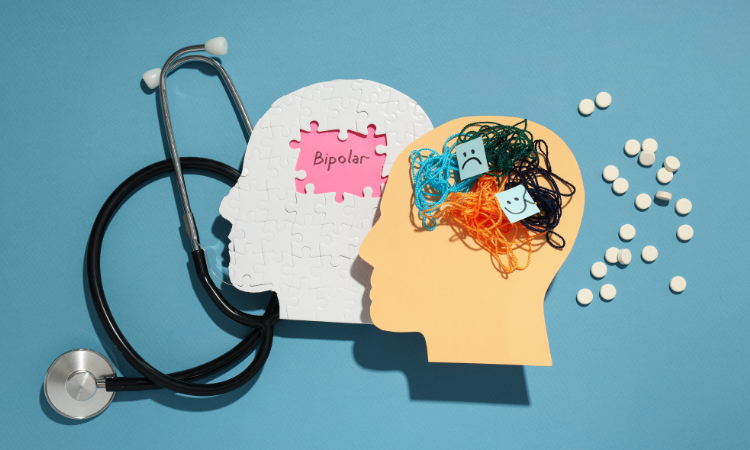The concepts of mental and emotional well-being are often used interchangeably, yet they represent distinct facets of human health. While both are integral to overall well-being, they involve different aspects of our psychological state and are influenced by varying factors. Understanding the differences between mental and emotional well-being is crucial for developing a comprehensive approach to health, as each requires unique strategies for care and management. This article delves into the nuances between mental and emotional well-being, explaining their roles, interconnections, and how to promote balance in both.
Defining Mental Well-being
Mental well-being is a broad term that encompasses the cognitive aspects of a person’s life. It involves how we process information, solve problems, make decisions, and respond to life’s challenges. Mental health refers to the functioning of our brain, particularly in terms of cognition, reasoning, memory, and perception. The state of one’s mental well-being can influence how well they navigate stressful situations, concentrate on tasks, or think clearly and rationally.
Positive mental well-being enables individuals to cope with life’s inevitable challenges, maintain a productive and fulfilling lifestyle, and develop resilience. It is also closely tied to physical health, as mental stress or illness can have significant impacts on bodily functions. Conditions such as anxiety, depression, and schizophrenia are examples of mental health disorders that disrupt cognitive function and perception.
Maintaining mental well-being involves practices that support clear thinking and mental clarity. These include engaging in stimulating cognitive activities, ensuring adequate rest, and seeking professional help when needed. Cognitive-behavioral therapies, meditation, and mindfulness practices have all been shown to help improve mental well-being.
Defining Emotional Well-being
Emotional well-being, on the other hand, refers to the ability to understand, regulate, and express emotions in a healthy way. It involves how we feel on a day-to-day basis, how we handle emotions like anger, sadness, joy, and fear, and how we interact with others. While mental well-being is more about cognitive functions, emotional well-being is focused on feelings and mood.
A person with good emotional well-being is typically in touch with their emotions, able to process them effectively, and capable of expressing them in ways that are constructive. Emotional well-being also impacts how well we can connect with others, build relationships, and experience empathy. A lack of emotional well-being can lead to difficulty managing stress, impulsive behaviors, and strained interpersonal relationships.
To nurture emotional well-being, one must practice emotional intelligence, which involves recognizing and controlling emotions. Techniques such as journaling, talking about feelings, and emotional regulation therapies are effective in building emotional resilience.
The Connection Between Mental and Emotional Well-being
While mental and emotional well-being are distinct, they are deeply interconnected. The state of one can significantly influence the other, often in complex ways. For instance, chronic stress, a mental condition, can lead to emotional disturbances such as irritability or mood swings. Conversely, prolonged emotional distress, such as unresolved grief or anger, difference b/w mental and emotional health issues like depression or anxiety.
This interplay creates a feedback loop between the mind and the heart. Mental clarity and problem-solving capabilities can directly impact how a person manages emotions. Similarly, the state of one’s emotions can either enhance or hinder cognitive functioning. For example, a person feeling overwhelmed by sadness may find it difficult to concentrate or make decisions, demonstrating how emotional states can affect mental well-being.
Holistic health approaches often emphasize the importance of balancing both mental and emotional well-being to achieve a harmonious state of overall health. Cognitive therapies are often paired with emotional regulation techniques to create a comprehensive treatment plan for individuals struggling with both aspects.
Factors Affecting Mental and Emotional Well-being
Various factors can influence both mental and emotional well-being, but they often differ in their primary impact.
Mental Well-being Factors
Mental well-being can be affected by genetics, brain chemistry, lifestyle choices, and environmental influences. Neurological conditions, trauma, and stress are significant contributors to the decline in mental health. Social isolation, lack of mental stimulation, and sleep deprivation also play a role in poor mental well-being.
Emotional Well-being Factors
Emotional well-being is more directly impacted by relationships, social support, self-esteem, and life satisfaction. Interpersonal dynamics, such as conflicts with family or friends, can significantly influence emotional states. Additionally, life events such as loss, grief, and major transitions can destabilize emotional well-being.
In some cases, external events such as job loss or financial insecurity may cause both mental and emotional distress, creating a compounded effect. For example, the mental stress of unemployment can lead to feelings of inadequacy, fueling emotional instability.
Promoting Mental and Emotional Well-being
Achieving a balance between mental and emotional well-being is essential for overall health. Both require dedicated attention, and the strategies to promote well-being in these areas, while overlapping, have unique approaches.
Promoting Mental Well-being
Maintaining mental well-being often involves engaging in cognitive activities that stimulate the brain, fostering resilience, and managing stress. Some effective strategies include:
Mindfulness and Meditation: Practices like mindfulness promote mental clarity and reduce cognitive overload, making it easier to process thoughts and make decisions.
Cognitive Behavioral Therapy (CBT): This therapeutic approach helps individuals reframe negative thought patterns and improve cognitive functioning.
Regular Sleep and Nutrition: Ensuring proper rest and a balanced diet can significantly boost mental well-being by improving brain function and reducing stress.
Challenging the Mind: Activities like puzzles, reading, and learning new skills can keep the brain engaged and mentally sharp.
Promoting Emotional Well-being
To foster emotional well-being, one must practice emotional awareness and regulation. Key approaches include:
Emotional Intelligence: Building emotional intelligence involves recognizing emotions in oneself and others, allowing for better management of feelings and improved relationships.
Expressive Writing: Journaling is a powerful tool for understanding and processing emotions, which can help release pent-up feelings and foster emotional balance.
Therapeutic Support: Emotional regulation therapies, including talk therapy or counseling, can provide valuable insights into emotional patterns and offer strategies for healthier expression.
Building Relationships: Strong social connections are vital for emotional health, as they offer support, empathy, and companionship, which buffer emotional stress.
Achieving Balance Between Mind and Heart
Given the connection between mental and emotional well-being, maintaining both requires a holistic approach. Strategies that incorporate mindfulness, self-awareness, and therapeutic interventions can help balance both cognitive and emotional states. Mental well-being fosters rational thinking and problem-solving, while emotional well-being promotes empathy and resilience. When these two are in harmony, individuals can lead more fulfilled, productive, and balanced lives.
The pursuit of well-being is an ongoing process that requires consistent care and attention. Through mindful practices, self-compassion, and proactive interventions, individuals can cultivate both their mental and emotional health, ensuring a balanced and vibrant life.
Conclusion
Mental and emotional well-being, though distinct, are intrinsically linked. Mental well-being pertains to cognitive function and clarity, while emotional well-being involves the regulation and expression of feelings. Together, they form the foundation of a healthy, balanced life. By nurturing both aspects through personalized strategies and mindfulness, individuals can achieve harmony between the mind and heart, fostering a sense of peace and resilience in the face of life’s challenges.

















